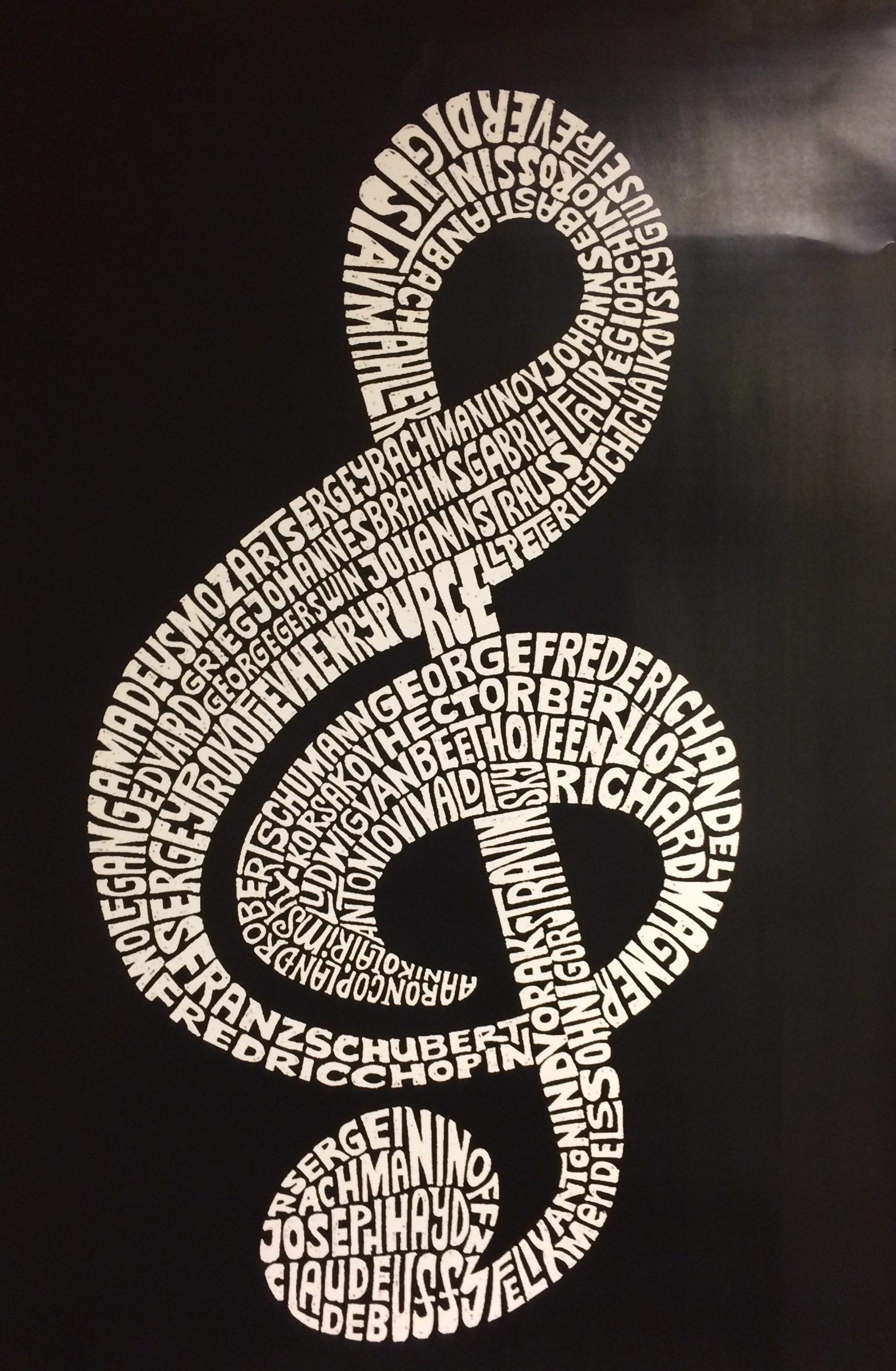I’ve been reading a lot about music lately – why it moves us so much, how it can change us, why it’s so enduring, why life without it would seem so diminished. Most of the people I’m reading are non-Christians. I find two recurring and seemingly disparate themes.
On the one hand, many writers view music through the lens of neuroscience. Recent advances in that area prompt fascination and further study. We’re intrigued to see how our brains respond to hearing, making, and thinking about music. It changes us biologically, stimulates interactions with different parts of our being, and points to something holistic or all-encompassing.
Most of these writers accept an evolutionary explanation for how this happened. Survival of the fittest required us to make music to propagate our species, make sure that males stuck around to help females raise children, and prevent self-destruction.
To be fair, I believe these writers would say that’s not all there is to music. But their methods of study seem to say that biology surpasses all other approaches.
At the same time, these writers wax eloquent about the greatness of music, almost in religious, doxological ways. Consider these statements found as epigraphs in Elena Mannes’ The Power of Music:
“When I hear music, I fear no danger, I am invulnerable, I see no foe. I am related to the earliest times and to the latest.” Henry David Thoreau, p. 57
“Music can change the world because it can change people.” Bono, p. 72
“Music is the universal language of mankind.” Longfellow, p. 88
“Music is a higher revelation than all wisdom and philosophy. Music is the electrical soil in which the spirit lives, thinks, and invents.” Beethoven, p. 211
Robert Jourdain boldly proclaims toward the end of his Music, The Brain, and Ecstasy:
“Many people say that it is beauty alone that draws them to music. But great music brings us even more. By providing the brain with an artificial environment, and forcing it through that environment in controlled ways, music imparts the means of experiencing relations far deeper than we encounter in our everyday lives….It’s for this reason that music can be transcendent. For a few moments it makes us larger than we really are, and the world more orderly than it really is. We respond not just to the beauty of the sustained deep relations that are revealed, but also to the fact of our perceiving them. As our brains are thrown into overdrive, we feel our very existence expand and realize that we can be more than we normally are, and that the world is more than it seems. That is cause enough for ecstasy.”
I’m drawn toward three conclusions:
First, I welcome all the insights about music through the channel of neuroscience as further evidence of God’s beautiful, complex, and interconnected creativity. Even the very neurons in our brains have been wired by the Master Engineer for enjoying the way He crafted everything else.
Second, while I love music, I cannot join these writers in their level of effusive praise for it. Music is a great gift but an inadequate god. It’s sublime but not supreme. It’s captivating but not messianic.
Third, I am reminded that we were made to worship and we will, most certainly, worship something. If not God, we might worship music (or any of a million other pseudo-gods that cannot satisfy or save). They are not worthy of our worth-ship but they will demand it.
As we interact with those around us, we might want to consider the topic of music (or, better still, the enjoyment of music) as common ground for discussion of God’s common grace. When the music stops and the inevitable disappointment sets in, we can point to the saving grace that provides what music cannot.




Lovely piece